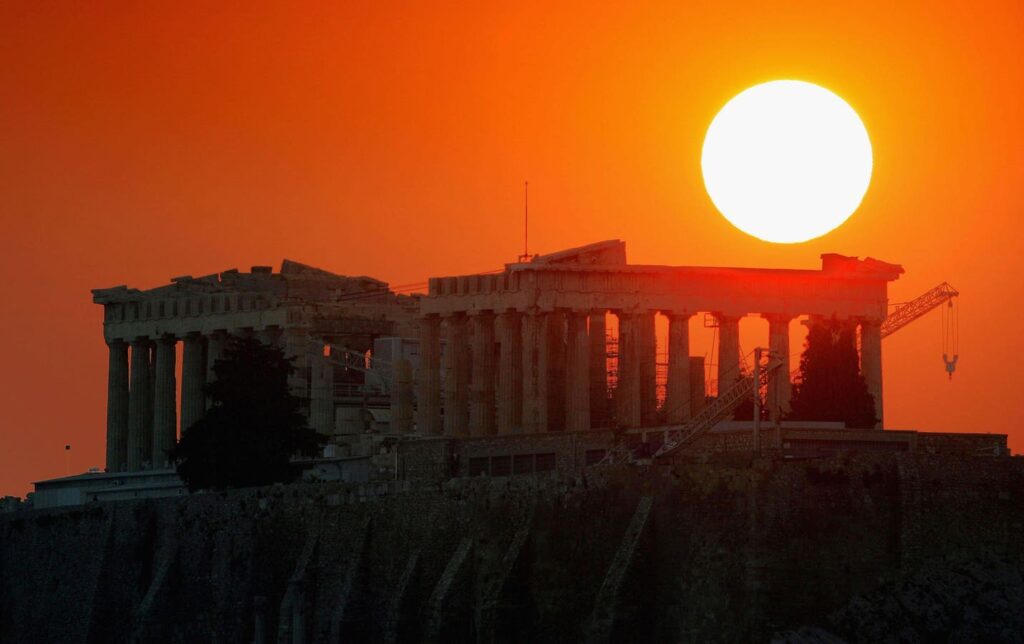The sun setting over the Parthenon (Photo: Scott Barber/Getty Images)
Never before have so many people wanted to spend their days visiting vineyards and writing about the fascinating subject of wine. Yet somehow, this profession (or should we say calling?) is in crisis. Perhaps it always has been. But as wine publications struggle for revenue and big tech platforms further squeeze visibility and traffic, the fragmentation of quality voices continues. The effect is to disperse the critical mass of engaged readers. With AI looming menacingly, raising the bar on quality is crucial to survival.
Given these risks, perhaps delving into early 20th-century British travel writing is a little too extravagant. Dwelling on the beautiful words of cultured gentlemen who endlessly expressed their satisfaction with the great works of the ancient world is usually at odds with the constant noise of notifications and emails, the need for a constant stream of content and invoices.
But this predicament presents an opportunity for some great exploration among the genre's more literary and erudite texts, often harmless misadventures, brimming with the kind of personality that makes such writing timeless. So, categorizing my investigation as research and momentary escapism, I embarked on the iconic work of Robert Bryan. The Road to Oxiana.
Published in 1937, the book chronicles Byron's journey across the Levant and the Middle East. While Byron's self-deprecating tone will inevitably resonate more appropriately with a British readership, it is widely regarded as a masterpiece, balancing witty recollection with sharp observation. His sensual prose vividly depicts exotic landscapes and captures the essence of people and places.
Though the author's primary interest lies in the great monuments of Islam, his in-depth knowledge is carefully managed and diluted with fascinating diary accounts that record the trials and tribulations of a colorful and unpredictable journey. Clearly, he is well versed in his field and is able to weave in scholarly commentary, but it is a background, a means to maintain order so that his more comic characters do not infringe on the intended atmosphere. For Byron, architecture (one might read wine) is a reason for travelling, but it is never the end of travel. story.
Henry Wollum Morton, despite his supposedly formidable personality, is one of the preeminent travel writers of a bygone era, and over the past few days I've found it difficult to put down his books. Travelers in Southern Italy (1969). The poetry is thin but the form is similar. A fascination with the lives of saints motivates his explorations, but his writing draws unobtrusively from wellsprings of knowledge, and he is adeptly aware of the importance of peeling back the curtain and taking a clear stand.
Inevitably, the subject of wine offers rich material for writers, with many areas for expertise. For me, the most compelling and most age-worthy wine writing inspires and evokes, like the best travel writing; it connects on an emotional level and makes you crave the experience. Simply put, the best books about wine are often not actually about wine—at least, not entirely.
The great American author Paul Theroux said, “Travel writing begins with journalism, moves to fiction, and ends with autobiography.” When I recall the light and elegant columns of Hugh Johnson and Michael Broadbent, I am reminded of Hemingway's words: “When a writer knows well enough about what he is writing about, he can omit what he knows. The movement of an iceberg is dignified because only one-ninth of it is above the water.”


